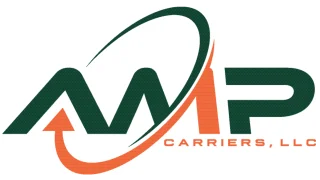Our Progress
We work with investors and companies in the transportation sector to reduce their overall climate impacts, achieve their corporate climate targets, and accelerate the just and sustainable transition to a low-carbon economy. We also build investor and corporate support for the federal and state policies needed to drive innovation, cut pollution, save manufacturers and consumers money, and boost the global competitiveness of the U.S. transportation industry. As a result of our advocacy, we are seeing real progress. Here are some recent highlights.
Advanced Clean Cars II
More states adopted strong clean vehicle standards, which Ceres has been instrumental in building investor and company support for over the years. Connecticut and New Jersey became the latest states to adopt the Advanced Clean Cars II (ACC II) rule, which requires automakers to increase sales of electric and other zero-emission models, culminating with 100% of new sales in 2035. California, Washington, Oregon, Massachusetts, New York, Virginia, and Vermont have already adopted ACC II and the ACT standard for clean trucks, which Colorado has also adopted.
Emissions Standards
In a letter to the EPA organized by Ceres, CALSTART, Zero Emission Transportation Association, Climate Group, Climate Collaborative, and B Lab, more than 60 leading investors and companies urged the agency to finalize the strongest emissions standards possible for light, medium and heavy-duty vehicles. The proposed standards would spur electric vehicle production and sales by ensuring that zero-emission vehicles account for as much as two-thirds of new vehicle sales by 2032 and would help meet the growing market demand for zero-emission commercial vehicles.
White House EV Acceleration Challenge
Ceres joined the White House’s EV Acceleration Challenge, committing to expand our work with major companies to transition to electric vehicles. As part of the challenge, five members of the Ceres Corporate Electric Vehicle Alliance-- Amazon, Exelon, Hertz, Siemens and Uber--made ambitious new EV commitments.
Advanced Clean Fleets
We mobilized more than 45 companies, investors, and institutions to call for the adoption of an ambitious version of the Advanced Clean Fleets (ACF) rule, which requires high-priority fleet operators to transition to 100% zero-emission vehicles by 2045. The policy will help companies meet their climate goals throughout their supply chains and strengthen the U.S.’s role as a global leader to attract clean transportation investment.
Medium and Heavy-Duty Zero Emission Vehicles
Nevada joined 16 other states in signing the Multi-State Medium and Heavy-Duty Zero Emission Vehicle Memorandum of Understanding. The agreement, supported by DHL and other companies in Ceres Electric Vehicle Alliance, helps states collaborate on strategies and plans designed to dramatically increase the number of clean medium and heavy-duty vehicles on the road in the coming years to address transportation pollution.
The Principles
Ceres Corporate Electric Vehicle Alliance released a first-ever set of fleet electrification principles, providing guidance on what auto and truck manufacturers, regulators, policymakers, and utilities can and must do to advance the commercial electric vehicle market.
Launch of the Corporate Electric Vehicle Alliance
Ceres launches the Corporate Electric Vehicle Alliance to accelerate the business transition to electric vehicles for all types of vehicles - from light-duty passenger cars to heavy-duty trucks. Members of the Alliance include Amazon, DHL, Hertz, IKEA, Lyft, National Grid, and Uber.












































